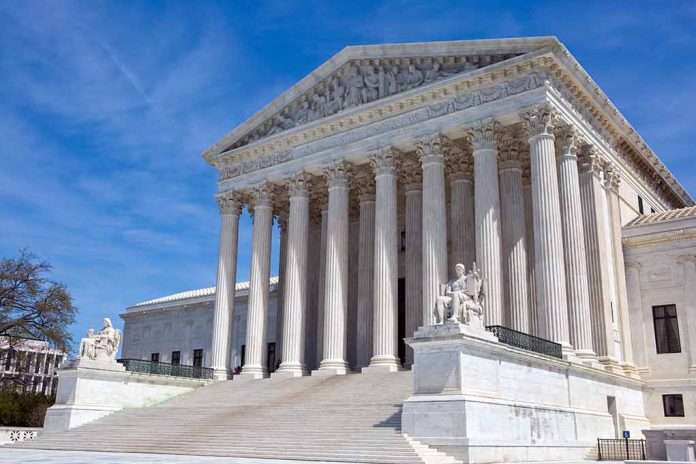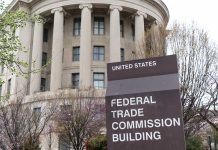
The Supreme Court is set to review federal regulations on ghost guns, potentially reshaping Second Amendment rights and gun control laws across the nation.
At a Glance
- The Supreme Court will hear arguments on the legality of Biden administration’s ghost gun regulations
- Ghost guns are untraceable firearms assembled from kits or 3D printed without serial numbers
- The case could expand Second Amendment protections and impact various firearm regulations
- Lower courts have already struck down the ghost gun rule in some jurisdictions
- The ruling could affect bans on ghost guns in multiple states and federal licensing requirements
Supreme Court to Weigh in on Ghost Gun Regulations
In a move that could significantly impact gun control laws, the Supreme Court has agreed to review federal regulations on so-called “ghost guns.” These firearms, which can be assembled from kits or manufactured using 3D printing technology, lack serial numbers and are therefore untraceable. The case, set to be heard in the fall, challenges a rule implemented by the Bureau of Alcohol, Tobacco, Firearms and Explosives (ATF) under the Biden administration.
The ATF’s 2022 rule expanded the definition of a firearm to include ghost gun kits, requiring federal licensing and serial numbers for traceability. This move was prompted by concerns over the use of these weapons in criminal activities. An ATF report found that law enforcement recovered over 72,000 ghost guns between 2016 and 2022, with more than 1,200 linked to homicides or attempted homicides.
Ghost guns are just as dangerous as regular firearms, and they put all of us in danger.
My office and 23 AGs are urging the U.S. Supreme Court to uphold a rule that regulates ghost guns the same way as other guns to help protect our communities from gun violence.
— NY AG James (@NewYorkStateAG) July 3, 2024
Second Amendment Implications
The Supreme Court’s decision could have far-reaching consequences for Second Amendment rights and gun control measures. Legal experts warn that a ruling against the federal government might significantly expand Second Amendment protections, potentially affecting various firearm regulations beyond ghost guns.
“The Supreme Court may want to expand Second Amendment protections from the right to own and carry a firearm to the right to make firearms and to sell them,” said Timothy Lytton, a law professor at Georgia State University.
This case follows the Supreme Court’s 2022 Bruen ruling, which established that gun regulations must align with historical traditions to be considered constitutional. This precedent has already led to challenges of existing gun laws in lower courts.
Current Status and Potential Impact
While the Supreme Court considers the case, the ghost gun regulations remain in effect. However, lower courts in Texas and the Fifth Circuit Court of Appeals have already struck down the rule, creating a patchwork of enforcement across the country. A ruling against the federal government could invalidate bans or restrictions on ghost guns in multiple states and impact federal licensing, inspection, and record-keeping requirements for gun manufacturers and dealers.
“In 2008, the Supreme Court ruled on the Second Amendment for the first time in almost 70 years in District of Columbia v. Heller, affirming an individual right to keep handguns in the home for self-defense. The Court was careful to stress the limited nature of its ruling, noting that the right secured by the Second Amendment is not unlimited.” – Source
Supporters of the regulations argue that they are crucial for public safety and law enforcement efforts. Critics contend that the rules infringe on Second Amendment rights and exceed the ATF’s authority. The case is part of a broader conservative movement to limit federal regulatory powers, and its outcome could shape the landscape of gun policy and constitutional interpretation for years to come.
Sources:
1. The Supreme Court upended gun laws nationwide. Mass confusion has followed.
2. The Supreme Court & the Second Amendment
3. The Supreme Court’s Ghost Gun Case Could Jeopardize Other Firearm Regulations














